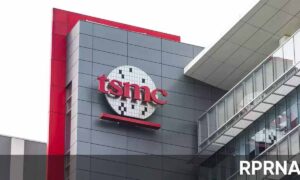According to the latest report, as TSMC’s advanced manufacturing process leads the pack and continues to expand production, in order to provide customers with a full range of services, its mature manufacturing processes have been expanded and upgraded and special manufacturing processes have been spared.
JOIN US ON TELEGRAM
Moreover, the industry estimates that TSMC’s investment in mature processes this year will exceed US$4 billion, and it will not be less than US$4 billion next year. The cumulative investment in mature processes in the past two years is nearly 10 billion US dollars.
The progress of TSMC’s advanced process has attracted much attention from the market, but in fact, the company has never stopped expanding on mature processes and has continued to customize and upgrade. Liu Deyin, chairman of TSMC, has publicly stated that the mature process, especially the 28-nanometer effective capacity, is oversupplied, but TSMC continues to expand the mature process, mainly in response to the needs of customer strategy development.
 In recent years, TSMC’s mature processes have focused on upgrading special process applications. Statistics show that the proportion of special process applications in the mature process of TSMC in the past four years accounted for about 45%.
In recent years, TSMC’s mature processes have focused on upgrading special process applications. Statistics show that the proportion of special process applications in the mature process of TSMC in the past four years accounted for about 45%.
Last year, with the increase in the total production capacity of mature processes, the proportion of special processes still increased to about 60%. This year, with the growth of customer demand, it is expected to continue to rise.
The report pointed out that TSMC’s special process mainly comes from mature process capacity transformation and mass production and is widely used. The related process spans 12nm, 16nm FFC RF, 22nm embedded RRAM technology to support IoT MCU applications, 28nm wireless charging, and automotive radar, and even high-end panel driver IC applications, new applications of 40-nanometer BCD (Bipolar-CMOS-DMOS) powerful versions in wireless charging chips, etc.
In addition, TSMC defines the advanced and mature process as the watershed at 7nm. The industry believes that this reflects the continuous advancement of TSMC’s production in related fields. As 3nm will be mass-produced in the second half of the year, it is expected that 7nm is expected to be gradually incorporated into the mature process field.










